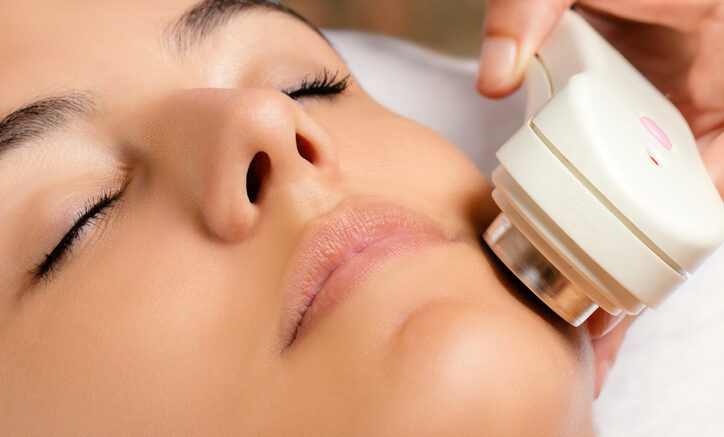Anyone who has ever had melasma knows how frustrating it can be to deal with. The discolored patches on the skin can show up anywhere but are most commonly found on the face.
While there is no one-size-fits-all solution for melasma, there are several melasma treatment options that can help improve the skin condition. In this melasma guide, we will help you understand whether melasma can go away on its own and recommend some of the best options for melasma treatment in Singapore.
Does Melasma go away?
Melasma is a common skin condition that causes brown or gray patches on the face. Though it can occur in both men and women, it is most often seen in women who are pregnant or taking birth control pills.
Melasma is thought to be caused by an increase in melanin, the pigment that gives skin its color. The condition is usually harmless, but it can be frustrating because it can be difficult to treat.
There is no cure for melasma, but there are several treatment options that can help to lighten the skin and improve its appearance. In some cases, melasma will eventually go away on its own, though it may take several months or even years.
In the meantime, there are steps that you can take to minimize its appearance and prevent further darkening of the skin. These include avoiding sun exposure and using a sunscreen every day, wearing hats and sunglasses, and avoiding certain skin care products.
Melasma Treatment Options in Singapore
When it comes to treating melasma, there are a variety of options available. Usually, the best approach is to start with the least invasive treatments and work up from there. Here are seven of the most popular melasma treatment options in Singapore:
Sunscreen
Wearing sunscreen daily can help protect your skin from further damage caused by UV rays and reduce inflammation. Sunscreen should be applied generously and reapplied throughout the day.
It does also help to limit sun exposure, wear hats and protective clothing, and avoid extreme heat. When outdoors, it is also important to seek shade.
Topical medications
Topical medications, such as hydroquinone and corticosteroids, are commonly used to lighten the skin. These medications work by reducing skin pigmentation and controlling inflammation.
Since these medications can cause irritation and other side effects, they should be used only as directed by your doctor. Also, be sure to patch test any new products before using them on your face.
Chemical peels
Chemical peels are a type of exfoliating treatment that can help to reduce the appearance of melasma. The chemicals used in the peels remove the top layer of skin, revealing the lighter skin underneath.
When using chemical peels, it is important to be aware of the potential side effects and talk to your doctor or aesthetician about any concerns you may have. Depending on the type of peel used, you may require a few treatments.

Laser and light therapy
Lasers and other sorts of light therapy are sometimes used to treat melasma. These treatments target the abnormal melanin production in the skin and break it up into smaller particles.
This can help to reduce hyperpigmentation and lighten the skin. However, these treatments can also cause side effects such as redness, swelling, and blistering.
Microdermabrasion
Microdermabrasion is a type of exfoliation that works by removing the top layer of dead skin cells. This helps to reveal brighter, smoother-looking skin and can also reduce hyperpigmentation caused by melasma.
It is important to note that even though this procedure can help reduce the appearance of melasma, it may not make the discoloration disappear completely. You may need several treatments to see noticeable results.
Bleaching creams
Bleaching creams are yet another option for treating melasma. These creams contain ingredients like hydroquinone, which work by blocking the production of melanin.
It is important to be aware that these creams can cause dryness, redness, and itching. If you experience any of these side effects, it is best to discontinue use and consult with your doctor.
Natural remedies
Did you also know that there are natural remedies that can help with melasma? These remedies include aloe vera, turmeric, and apple cider vinegar.
Though these treatments may not be as effective as other, more serious treatments, they can still be helpful in reducing inflammation and brightening the skin. As with any treatment option, it is important to talk to your doctor before trying any natural remedies.
How do you know which Melasma Treatment is Right for You?
When it comes to choosing a melasma treatment in Singapore, it is important to take into account a variety of factors. Before making any decisions, it is important to talk to your doctor about the most effective and safest option for you.
Your doctor will consider factors such as your age, skin type, medical history, and lifestyle to determine which treatment will work best for you. It is also important to consider the potential side effects that may occur with each treatment.
What if None of the Treatments Work?
Unfortunately, there is no guarantee that any treatment will work for everyone’s melasma. If you find that none of the treatments are working, it is important to talk to your doctor about other options.
Your doctor may recommend a combination of treatments or suggest you move on to more aggressive treatments, such as laser therapy. It is also important to note that melasma may come back after treatment, in which case it is best to consult with your doctor to find the most effective treatment plan.
No matter which treatment you choose, it is important to remember that melasma can be difficult to treat and requires patience and commitment. With time and care, you can reduce the appearance of melasma and achieve a brighter complexion.
The Bottom Line
Melasma is a complex condition that can be difficult to treat, but with the help of your doctor and the right combination of treatments, it is possible to reduce the appearance of melasma and restore your skin’s natural radiance. With careful consideration and research, you can choose a treatment plan that will work best for you.
